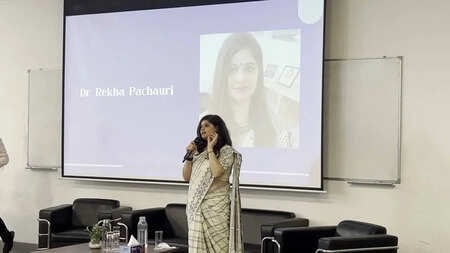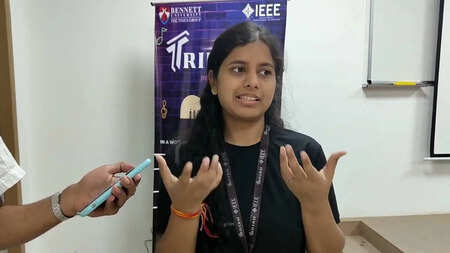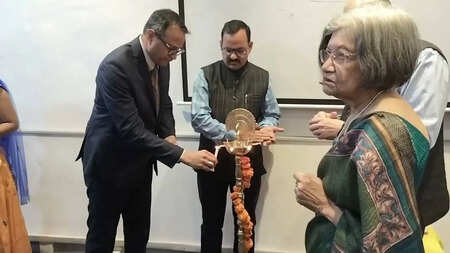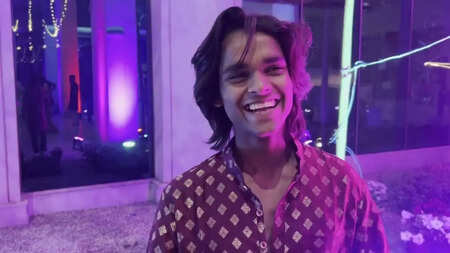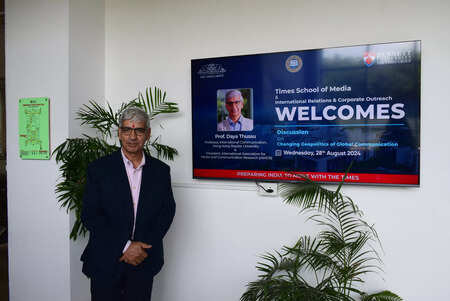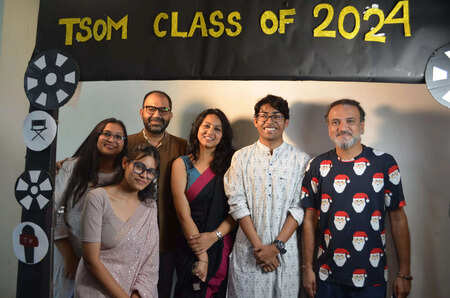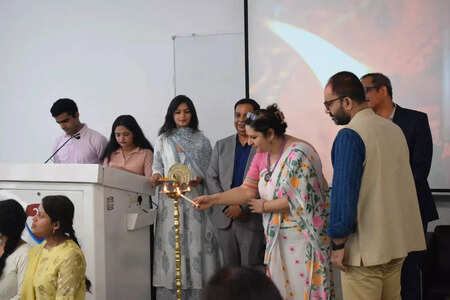Dark times, Darker memes: How Gen Z laughs through their pain
Times of Bennett | Updated: Sep 05, 2025 19:51

SOCIETY IN STEREO
Correspondent - Navya Arora
From a generation raised in chaos, dark humour is more than comedy -it’s survival

We do not just cry into pillows anymore, we post a meme about wanting to vanish, add a laughing emoji ironically and somehow thousands of strangers double tap into solidarity. This is internet’s strangest therapy session, where anxiety is not hidden it’s turned into punch lines.

In a world full of exam stress, uncertain future climate doom and even late night over thinking we have chosen a way to laugh at the very fears that keeps us awake. If millennials had Facebook posts and motivational quotes, usGen-z have self-deprecating reels and jokes like “I’m so dead” that makes the unbearable feel oddly relatable.
This style of humour truly cemented itself during the pandemic when isolation and uncertainty left young people clinging to their screens for connection but even today long after lockdowns the dark meme culture dominates Gen Z culture .It’s proof that the collective anxiety fuelling us hasn’t gone anywhere .If anything, it has only grown louder.
The question here is: why choose darkness at all? Because we'd rather be acutely self-aware of our own messes than silently drown in them.
Some psychologists call it “maladaptive coping” while critics call it “too dark” but for us it’s simply survival. We have built an online language of irony and absurdity where despair turns into something almost empowering.
In a society that constantly demands people to ‘fit in’ and appear fine, we’ve carved out the internet as a safe corner where memes act as shields and confessions -an acceptable way of saying that “I’m not okay” without breaking the unspoken rule of always looking put -together .Behind the jokes ,what we’re really building is a collective stage where pretending is replaced by shared vulnerability .

In a world that refuses to slow down, we have stopped waiting for answers. Instead, we laugh at the questions. But here’s what lingers: Is this humour really helping us heal, or is it just teaching us to laugh while the wounds stay open? -The answer perhaps is for us to decide.
-The writer is a media student, storyteller and a pop culture enthusiast. Through her column “society in stereo” she aims to explore the things we usually consume just for entertainment uncovering deeper perspectives and meanings hidden beneath them.
Correspondent - Navya Arora
From a generation raised in chaos, dark humour is more than comedy -it’s survival

We do not just cry into pillows anymore, we post a meme about wanting to vanish, add a laughing emoji ironically and somehow thousands of strangers double tap into solidarity. This is internet’s strangest therapy session, where anxiety is not hidden it’s turned into punch lines.

In a world full of exam stress, uncertain future climate doom and even late night over thinking we have chosen a way to laugh at the very fears that keeps us awake. If millennials had Facebook posts and motivational quotes, us
This style of humour truly cemented itself during the pandemic when isolation and uncertainty left young people clinging to their screens for connection but even today long after lockdowns the dark meme culture dominates Gen Z culture .It’s proof that the collective anxiety fuelling us hasn’t gone anywhere .If anything, it has only grown louder.
The question here is: why choose darkness at all? Because we'd rather be acutely self-aware of our own messes than silently drown in them.
Some psychologists call it “maladaptive coping” while critics call it “too dark” but for us it’s simply survival. We have built an online language of irony and absurdity where despair turns into something almost empowering.
In a society that constantly demands people to ‘fit in’ and appear fine, we’ve carved out the internet as a safe corner where memes act as shields and confessions -an acceptable way of saying that “I’m not okay” without breaking the unspoken rule of always looking put -together .Behind the jokes ,what we’re really building is a collective stage where pretending is replaced by shared vulnerability .

In a world that refuses to slow down, we have stopped waiting for answers. Instead, we laugh at the questions. But here’s what lingers: Is this humour really helping us heal, or is it just teaching us to laugh while the wounds stay open? -The answer perhaps is for us to decide.
-The writer is a media student, storyteller and a pop culture enthusiast. Through her column “society in stereo” she aims to explore the things we usually consume just for entertainment uncovering deeper perspectives and meanings hidden beneath them.


